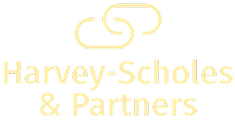For many founders, international expansion feels like a natural next step. A few inbound enquiries from another market, some promising distributor conversations, and it’s tempting to see growth abroad as the logical sign of progress. But expansion is rarely just an opportunity question, it’s a timing question. Too early, and it can stretch a business thin. Too late, and you may lose your edge.
At Harvey-Scholes & Partners, we’ve worked with founders and leadership teams navigating international expansion, helping companies bring products and services to the UK as well as expanding into new countries across Europe.
1. Don’t Confuse Demand with Readiness
Interest from another market is exciting, but it’s not always a signal to scale. True readiness means your product, operations, and internal culture can travel without losing what makes them effective.
Often, the limiting factor isn’t sales potential but organisational capacity. Do you have the systems to manage distribution and customer support across borders? Are your team and processes scalable? A business stretched too soon risks burning energy on complexity rather than growth.
We’ve seen the strongest results from companies that pause to strengthen their domestic foundations before moving outward. It’s easier to scale clarity than chaos.
2. Pilot Before Larger Rollout
Big expansions rarely start with big moves. They start with a small, measurable discovery process. Running a pilot project in a target country directly, or through a distributor partnership, can tell you far more than any desk research.
For one client entering the Danish market, we encouraged a limited launch through a local distributor before committing to full-scale operations. Within months, they had tangible data on pricing, logistics, and customer feedback, and a far clearer sense of how to adapt their offering.
A good pilot should answer three questions:
- Is there real demand?
- Can we deliver effectively?
- What must we adapt in our product or service to fit the market?
Only once those answers are clear should you think about a larger more targeted rollout.
3. Choose Markets Strategically, Not Opportunistically
Europe may look like one region, but it’s a mosaic of distinct cultures, regulations, and customer behaviours. A product that flies in Germany might stall in Italy for reasons that have nothing to do with quality.
Before deciding where to go, founders should evaluate markets through a few simple lenses:
- Product-market fit: Is there a clear customer problem or demand your product solves?
- Accessibility: Can you reach and serve those customers effectively?
- Cultural and operational compatibility: Will your way of working function across borders?
It’s tempting to chase the market that shows the first spark of interest, but the most successful expansions are those that match a company’s strengths, not just its ambitions.
4. The Right Partners Accelerate Everything
No company expands alone. Strategic alliances with distributors, manufacturers, or service partners can dramatically de-risk entry and shorten time to market.
When working with European manufacturers and distributors, we’ve seen how partnerships can unlock credibility and efficiency. The best partnerships go beyond contracts; they’re built on aligned goals, clear communication, and a mutual understanding of what “success” looks like in that market.
For early-stage or lean teams, a well-chosen partner can be the difference between a smooth entry or a costly lesson.
5. Build a Bridge, Not a Branch
The most effective international launches are extensions of a company’s existing rhythm, not standalone operations. In the early phase, the goal isn’t to build a new business abroad, it’s to build a bridge between your core team and your new market.
That means staying close to feedback, keeping communication open, and maintaining cultural consistency. Expansion shouldn’t dilute your company or your values; it should scale them.
Growth with Intent
International expansion is one of the most exciting milestones in a company’s journey, but it’s also one of the most demanding. The companies that thrive abroad are rarely those that moved fastest, but those that moved most intentionally.
Taking time to validate, plan, and partner effectively doesn’t slow growth, it compounds it.
At Harvey-Scholes & Partners, we help founders navigate these decisions with clarity and confidence, ensuring that when expansion happens, it happens on strong foundations.
